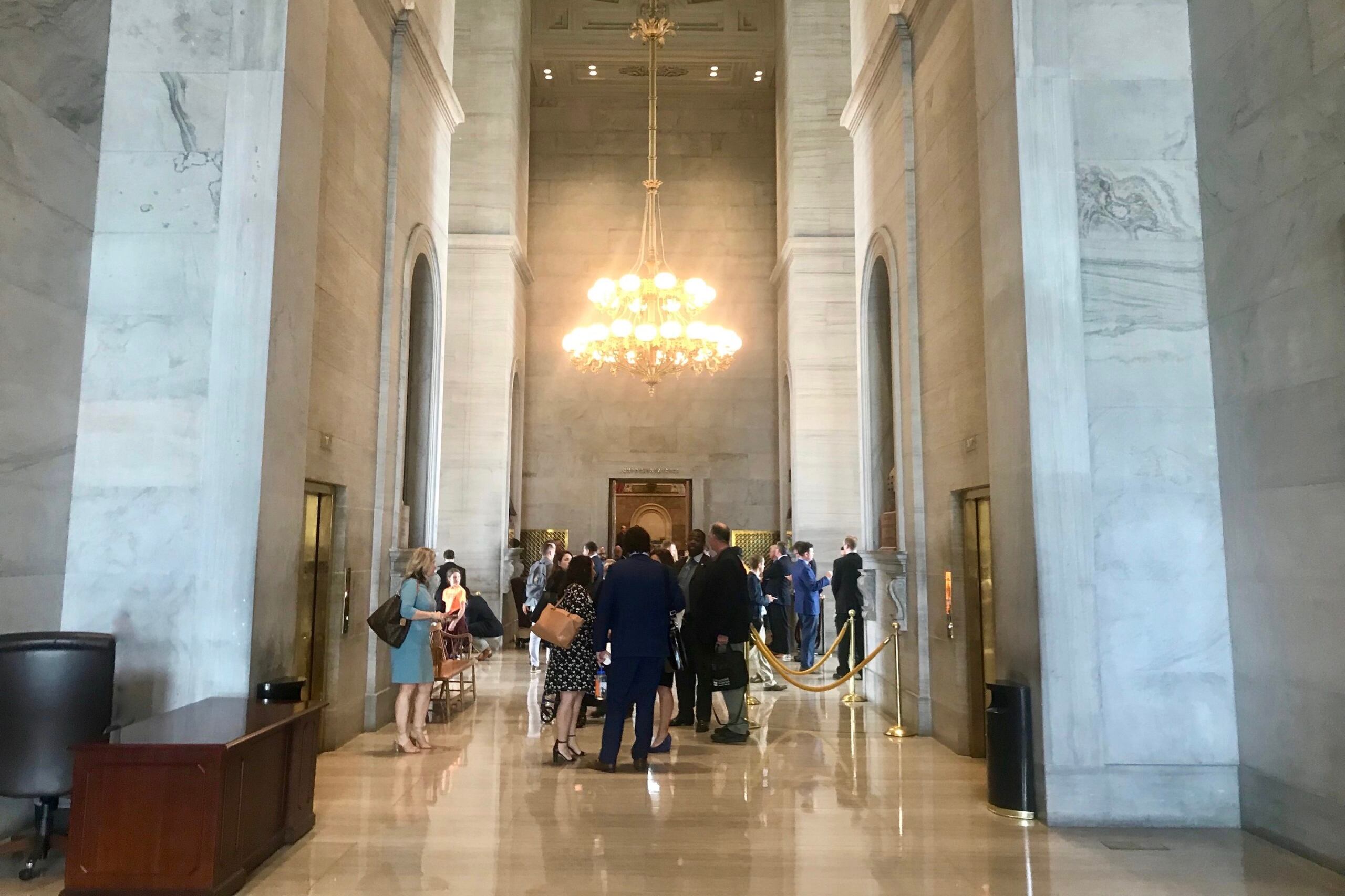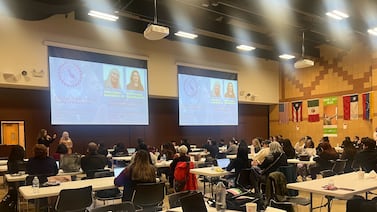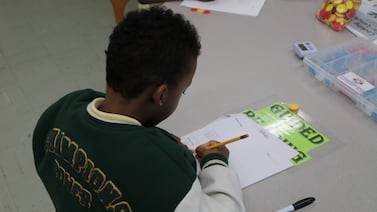Tennessee lawmakers advanced a bundle of bills Thursday that would limit the authority of local school leaders, health officials, and businesses on COVID restrictions meant to tame or end the pandemic.
Meeting in a special session, the Republican supermajority chose personal liberties over public health recommendations in proposal after proposal aimed at upending mask and vaccine mandates, as well as loosening restrictions for quarantining students and staff who may have been exposed to the virus.
Under the broad scope of the session called by the legislature, lawmakers also advanced a measure to make school board races partisan contests — where candidates would have to declare their political party — beginning next year. Whether those partisan races would be required or up to local political parties is still in the air, as Senate and House committees passed different versions.
The legislative flurry reflects the GOP’s determination to return to life to normal after COVID cases dropped from their peak in early September, even as fewer than half of Tennesseans are fully vaccinated. But forecasting the virus’ future is difficult as new mutations emerge and infectious disease experts say another wave is likely when cold weather pushes people indoors.
“I wish we could pass a law and say that COVID no longer exists; it does still exist,” acknowledged Senate Majority Leader Jack Johnson.
In the meantime, the Franklin Republican introduced one sweeping bill that he said would help Tennessee “move forward and put this terrible chapter of our lives behind us,” as well as clear up confusion about the patchwork of mitigation policies across the state.
Among other things, the measure would allow 14-day school mask mandates only if the governor has declared a COVID-specific state of emergency; the county has had a rolling infection rate of at least 1,000 cases for every 100,000 citizens over 14 days; and the local school board approves the requirements on a school-by-school basis.
The legislation, which could be heard on the floor of both chambers on Friday, also would prevent any school, private business, or governmental entity from taking an adverse action against an unvaccinated employee.
“We have to get to a place in this state where we have to recognize and respect people’s decisions about whether or not they receive the vaccine,” Johnson said.
Sen. Raumesh Akbari of Memphis was among outnumbered Democrats opposing the bill. She said the policies would hurt both school and private business efforts to mitigate COVID — and put “an undue burden on the vaccinated public.”
“Quite frankly, I believe that school districts understand their districts well. They know what happens in their own communities,” Akbari said.
The measure easily advanced, while Tennessee Attorney General Herbert H. Slatery III joined 20 counterparts in other states Thursday calling on President Joe Biden to withdraw his executive order mandating the vaccine for federal employees and contractors.
The special session is Tennessee’s third this year but the first called by the legislature since 1982. Republican Gov. Bill Lee ordered lawmakers back to Nashville last week to approve a $900 million incentive package to secure Ford Motor Co.’s new $5.6 billion electric vehicle plant in West Tennessee.
Lee said this week’s gathering was unnecessary, partly because of his executive order allowing families to opt their students out of school mask mandates. The order is set to expire Nov. 5, but is blocked by federal judges in three counties.
While more than 80 bills have been filed for consideration during the special session, lawmakers are concentrating on eight proposals co-sponsored by House Speaker Cameron Sexton and Lt. Gov. Randy McNally. They include the massive COVID mitigation bill introduced by Johnson, which also allows employees who are fired for refusing the vaccine to collect unemployment — benefits that the legislature previously rejected for employees who left their jobs because they feared contracting the virus.
Another Sexton-McNally bill would require school board elections to introduce party labels to nonpartisan school board races. However, the Senate Education Committee amended the measure to drop the mandate and let local parties decide, as proposed earlier in separate legislation co-sponsored by Republicans Rep. Scott Cepicky and Sen. Joey Hensley.
“Voters right now have a huge lack of transparency from school board members because they’re able to run as nonpartisan,” said Cepicky, who agreed to carry the speakers’ bill in place of his own. “What this bill does is require individuals to declare Democrat, Republican or independent.”
Many Republicans who are angry about school mask mandates believe partisan school boards in Republican-heavy Tennessee would be more responsive to GOP policies. But the proposal is opposed by the professional organizations representing Tennessee school boards and superintendents who want less politics in education, not more. If both bills pass their full chambers as is, the matter would head to a conference committee to negotiate a final bill.
Another measure that advanced Thursday would limit the power of six large independent county health departments from issuing their own health orders during the pandemic. The six include departments based in the state’s four largest cities, where some orders have led to school mask mandates in districts that had not planned to issue them.
Conservative Republicans hail the special session as a campaign to uphold personal liberties, while Democrats call it a dangerous waste of time and money.
“When it comes to education, this special session is not about what’s best for kids. It’s political grandstanding at its finest,” said Rep. Vincent Dixie of Nashville, who dressed in a black suit as a symbol of democracy dying.
“I think this whole special session is a grab for the Trump base,” said Rep. Antonio Parkinson of Memphis, referring to former President Donald Trump. “But it could come back to bite Republicans. They’re making enemies in the business community who don’t want new laws interfering with them. And these policies have teachers literally fleeing the profession.”
The GOP agenda has clashed with private industry, including the Tennessee Chamber of Commerce, the state’s most powerful trade group. Business leaders worry they’ll be squeezed by opposing federal and state orders.
“We do not believe government, at any level, should unnecessarily interfere with health, safety and operational decisions of private businesses,” the group said in a statement last week.
The head of the state’s largest teacher organization was critical of the pace of the session that began Wednesday and could wrap up as soon as Friday, though more likely will spill over into next week.
“These are sweeping decisions, but doing it without stakeholder involvement is creating a lot of anxiety,” said Tennessee Education Association President Beth Brown. “If it wasn’t so serious, it would be comical.”
To livestream the proceedings, visit here.






